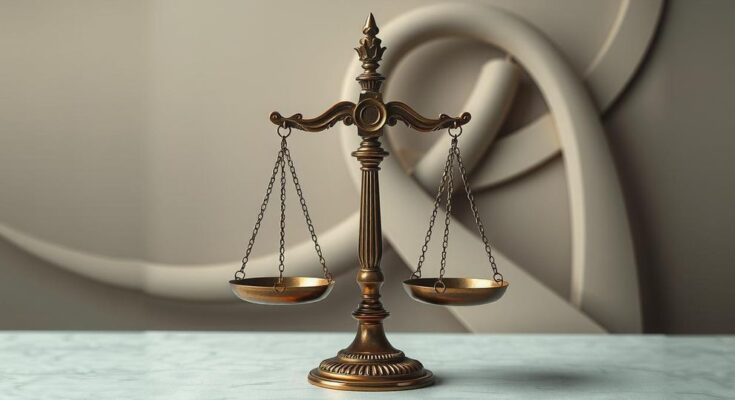During a visit to Beirut, US Deputy Special Envoy Morgan Ortagus warned against Hezbollah’s presence in Lebanon’s new government, asserting that the group has been “defeated” in its conflicts with Israel. Hezbollah condemned her comments as interference. Ortagus emphasized US boundaries on Hezbollah’s role in governance and expressed hope for a corruption-free government led by Prime Minister-designate Nawaf Salam, amidst ongoing political challenges in Lebanon.
A senior official from the United States cautioned against Hezbollah’s involvement in the new Lebanese government during a visit to Beirut on Friday. US Deputy Special Envoy for the Middle East, Morgan Ortagus, remarked that the Iran-backed group has been “defeated” following its conflicts with Israel. Hezbollah responded to these remarks as “blatant interference” amidst Lebanon’s ongoing efforts to form a government under Prime Minister-designate Nawaf Salam.
Ortagus specified that the United States has established firm boundaries regarding Hezbollah’s influence, insisting that the group must not be allowed to menace Lebanese citizens or partake in governance. After meeting with Lebanese President Joseph Aoun, she emphasized the US’s stance against Hezbollah’s participation in the government. She credited Israel for its role in undermining Hezbollah’s capabilities, stating, “Hezbollah was defeated by Israel, and we are grateful to our ally Israel for defeating Hezbollah.”
Responding to Ortagus’s statements, Aoun sought to distance himself from her assertions, noting they reflect her personal viewpoints. The leader of Hezbollah’s parliamentary bloc, Mohammed Raad, criticized Ortagus’s comments, branding them as irresponsible and a direct encroachment on Lebanese sovereignty. Following extensive conflict, Hezbollah’s operational capacity has notably diminished, further complicating the unity of Lebanon’s political factions.
Ortagus, on her inaugural official trip abroad since her appointment, articulated hopes that the next government in Lebanon would work towards mitigating corruption, curtailing Hezbollah’s influence, and implementing necessary reforms. Salam has previously pledged to construct a government devoid of members from political parties implicated in corruption, addressing Lebanon’s urgent calls for accountability.
As traditional political power in Lebanon is divided among sectarian groups, Hezbollah and its ally Amal have demanded input regarding Shiite cabinet positions, which Salam has rejected. Following over two years of political stalemate, Aoun’s election and Salam’s designation signal a critical moment for the country amidst ongoing challenges to governance and order.
In addition, Salam has committed to upholding a UN resolution demanding Israel’s withdrawal from Lebanese territory, with President Aoun emphasizing military readiness to fill vacated areas. The US facilitated a ceasefire agreement between the two nations, further underscoring Washington’s dedication to ensuring compliance with the newly established withdrawal timeline from Israel as Hezbollah reorganizes post-conflict.
The United States has long maintained a critical stance towards Hezbollah, considering it a terrorist organization due to its affiliation with Iran and its military actions against Israel. This perspective has been increasingly emphasized within Lebanon, where Hezbollah’s influence in politics has provoked significant contention among various Lebanese factions. Recent military engagements and geopolitical developments have led to a reevaluation of Hezbollah’s position within Lebanon’s power dynamics, creating a complex landscape for forming a new government amid severe national challenges that include economic collapse and demands for systemic reform.
In conclusion, the US envoy’s strong opposition to Hezbollah’s participation in the new Lebanese government reflects a broader strategy to diminish the group’s influence while promoting political reform in Lebanon. This visit highlights the delicate balance of power in Lebanese politics and the ongoing repercussions of Hezbollah’s military defeat and political challenges. The situation remains fluid as Lebanon seeks to navigate its way through political wrangling and international pressures to restore governance and order.
Original Source: www.themountainpress.com




